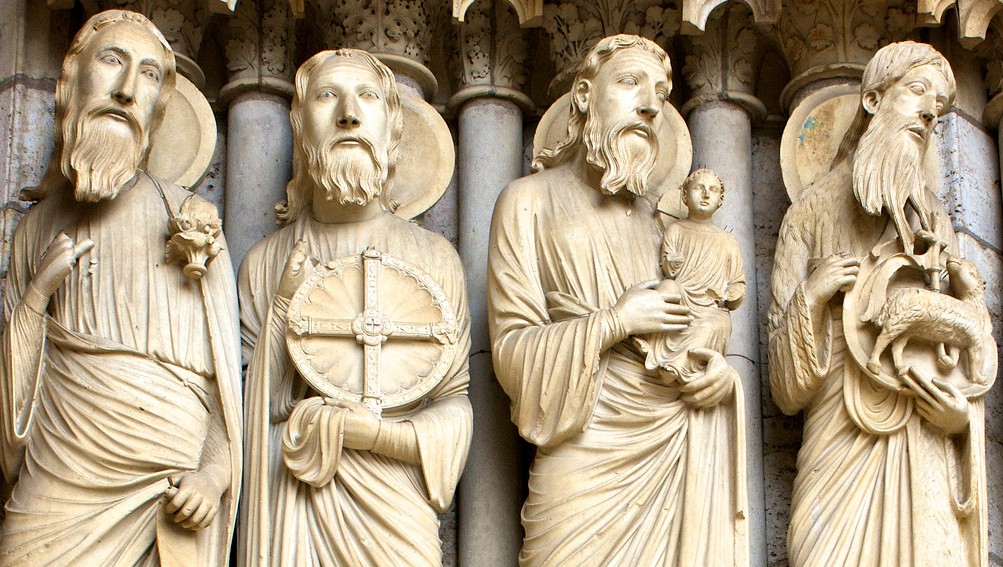
In Acts 3, near the end of his sermon in Solomon’s Portico, Peter says that “all the prophets, as many as have spoken, from Samuel and those after him, also predicted these days” in which God would bring salvation in Christ.
Old Testament scholar R. E. Clements once pointed out that this New Testament text contains two crucial assumptions which run counter to much Old Testament scholarship: (1) that it’s possible to summarize what “all the prophets” said, and (2) that such a summary is a message of salvation.
In an article that takes Clements’ observation as a starting point, H.G.M. Williamson puts it this way:
This understanding of prophecy seems to fly in the face of two of the most significant results of the study of the prophets by modern critical scholarship. On the one hand it presupposes that the prophets proclaimed a unified message, whereas any textbook on prophecy in ancient Israel is likely to concentrate on drawing out the distinctive message of each prophet or prophetic book, and on the other it makes clear that the prophets focussed primarily on a proclamation of salvation, whereas if we had to use a single word to summarize the content of at any rate the majority of the prophetic books, that word would be judgement.
(This is from H. G. M. Williamson, “Hope under Judgement: The Prophets’ of the Eighth Century BCE.” Evangelical Quarterly 72:4 (2000)291-306), at 291).
Both scholars turn their attention, in rather different ways, to navigating the gap between what they can say in historical or literary-critical mode on the one hand, and what they can say theologically on the other. The magic wand that gets waved here is the great word “canonical,” and despite its tendency to be overused and overlaid with new nuances of meaning as layers of scholarship sediment on top of it, it is indeed the right word: The prophets mean more together than they do apart.
Taken in isolation, a book like Amos seems relentlessly negative, a message of doom with almost no glimmers of hope. But if you read it as one entry in the larger unit, the so-called minor prophets or the “Book of the Twelve,” Amos is part of a larger story. It could be seen as the early, dark chapter in a multi-chapter book with a happy ending (or the promise of a happy ending).
This is especially the case when you consider Amos as a prophecy of doom for the northern kingdom of Israel, which is subsequently read and collected in the southern kingdom with an eye to its implications for Judah.
Williamson goes considerably further than this, employing redaction-critical arguments to find linking words in a close reading of the Hebrew text of Amos that point forward to Obadiah, words that stitch Amos into the Book of the Twelve. That stitching, or weaving, lets him keep his historical-critical credentials above reproach as he presses on to make larger claims about the one message of all the prophets, a message about salvation:
Even the most doom-laden prophets, such as Amos, conclude in their canonical form with a word of salvation, and regardless of the literary history which led to this circumstance –a history which has frequently led to such sayings being first dismissed as secondary and then ignored– we should recognize that they bear witness to a pattern of interpretation which has been woven into the very fabric of the prophetic corpus.” (292)
My purely doctrinal side wants to wave a hand impatiently and say, “You exegetes get this stuff figured out any way you want to, but the bottom line is we have to be able to read the prophets as a unified voice testifying to salvation in Christ.” But my Bible-meditating side wants to hear more about the actual arguments and conceptual tools the exegetes are working with as they win their way back to the ability to hear all the prophets say this one thing. Because all the prophets proclaim this message, but each of them does it differently, and their witness is more in the texts than in the men, and the texts in front of us have histories, and those histories are complexly intertwined with each other, and so on: All this fascinating stuff has become more fascinating in the last few centuries of sober exegesis. It’s certainly time to get back to the main thing, but the detour was far from useless.